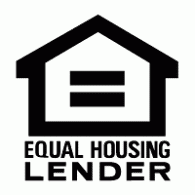Buying a home is a significant milestone, but securing the necessary financing can be challenging, especially for self-employed individuals or those with irregular incomes. Traditional mortgages often require extensive documentation and proof of steady income, which can be a hurdle for many. This is where bank statement loans come into play. These loans offer a flexible alternative, allowing borrowers to qualify based on their bank statements rather than traditional income documentation, such as tax returns, W-2s and paystubs. Let’s dive into how bank statement loans work, their pros and cons, and why they might be viable for your home-buying or refinancing needs.
How Do Bank Statement Loans Work?
Bank statement loans are designed for individuals who may not have a consistent monthly income but can demonstrate their ability to repay the loan through bank statements. Instead of relying on W-2s, pay stubs, or tax returns, lenders evaluate the borrower’s bank statements over a specified period, typically 12 or 24 months. These statements provide a snapshot of the borrower’s cash flow, helping lenders assess their financial health and ability to manage mortgage payments.
The Home Buying Process with Bank Statement Loans
- Application: The process begins with the borrower applying to a lender specializing in bank statement loans. Unlike traditional mortgages, the application process is more flexible and focuses on bank statements.
- Documentation: Borrowers must provide personal or business bank statements for the past 12 or 24 months. Lenders may also request additional documents, such as proof of business ownership, or a certified public accountant (CPA) letter.
- Income Calculation: Lenders analyze the submitted bank statements to calculate the borrower’s average monthly income. This income figure determines the loan amount the borrower qualifies for.
- Loan Approval: The loan is approved once the income calculation is complete and the borrower meets the lender’s criteria. Due to the streamlined documentation requirements, the approval process for bank statement loans can be faster than that for traditional loans.
- Closing: After approval, the loan proceeds to closing, where the borrower finalizes the home purchase and receives the loan funds.
The Refinance Process with Bank Statement Loans
Refinancing with a bank statement loan follows a similar process. Borrowers looking to refinance their existing mortgage can submit their bank statements to qualify for a new loan.
Weighing the Pros and Cons of Bank Statement Loans
Pros
- Flexibility for Self-Employed Borrowers: Bank statement loans are ideal for self-employed individuals, freelancers, or gig workers who may not have consistent pay stubs or W-2s but have a strong cash flow.
- Simplified Documentation: The primary requirement is bank statements, reducing the paperwork burden compared to traditional mortgages.
- Faster Approval Process: With less documentation to review, the approval process can be quicker, allowing borrowers to secure financing and close a home faster.
- Higher Loan Limits: Borrowers with substantial bank deposits can qualify for higher loan amounts, which allows them to purchase more expensive properties.
Cons
- Higher Interest Rates: Bank statement loans often have higher interest rates than traditional mortgages due to the increased risk for lenders.
- Larger Down Payments: Lenders may require a larger down payment to offset the risk, which can be a barrier for some borrowers.
- Stricter Credit Requirements: While bank statement loans are more flexible with income documentation, lenders may still require a higher credit score and a strong credit history.
- Limited Lender Options: Not all lenders offer bank statement loans, so borrowers may have fewer options and need to shop around to find a suitable lender.
Different Types of Bank Statement Loans
Bank statement loans come in various forms to meet different borrower needs. Here are the common types:
12-Month Personal Bank Statement Loans: This type of loan requires borrowers to submit their bank statements for the past 12 months. It is suitable for individuals with consistent personal income deposits.
24-Month Personal Bank Statement Loans: Similar to the 12-month option, this loan requires 24 months of personal bank statements. It provides a more extended period for lenders to assess income stability, which can benefit borrowers with fluctuating incomes.
12-Month Business Bank Statement Loans: This loan requires 12 months of business bank statements for business owners. It focuses on the borrower’s business’s cash flow and financial health.
24-Month Business Bank Statement Loans: This option requires 24 months of business bank statements, offering a longer period for income assessment. It is ideal for business owners with seasonal income variations.
Bank Statement Loans as an Option for Non-Traditional Borrowers
Bank statement loans are a viable option for those who may not qualify for traditional mortgages due to irregular income or self-employment. These loans provide an alternative pathway to homeownership by focusing on cash flow rather than conventional income documentation. Borrowers who have difficulty meeting the strict requirements of traditional loans may find bank statement loans a flexible and accessible solution.
Comparing Rates and Terms
When considering a bank statement loan, it is crucial to compare rates and terms from different lenders. Interest rates, down payment requirements, and loan terms can vary significantly between lenders. By shopping around and obtaining multiple quotes, borrowers can find the best deal that suits their financial situation.
Key Takeaways
- Flexibility: Bank statement loans offer a flexible alternative for self-employed individuals or those with irregular income, making homeownership more accessible.
- Simplified Documentation: The primary requirement of bank statements simplifies the documentation process, reducing the paperwork burden for borrowers.
- Faster Approval: The streamlined documentation requirements can lead to a faster approval process, allowing for quicker closings.
- Higher Costs: Borrowers should be aware of potentially higher interest rates and larger down payments than traditional mortgages.
- Comparison Shopping: It is essential to compare rates and terms from different lenders to find the best deal and ensure the loan meets the borrower’s financial needs.
Importance of Careful Consideration
While bank statement loans can be a valuable tool for homebuyers and those looking to refinance, careful consideration is essential before taking out such a loan. Borrowers should assess their financial situation, understand the terms and conditions, and compare multiple lenders to find the best option. By doing so, they can make an informed decision that supports their homeownership goals without compromising their financial stability.
In conclusion, bank statement loans provide a flexible and accessible alternative for individuals who may not qualify for traditional mortgages. By leveraging bank statements as proof of income, these loans open up opportunities for self-employed individuals, freelancers, and those with irregular income to achieve their dream of homeownership. However, weighing the pros and cons, comparing different lenders, and carefully considering the loan terms to ensure they align with your financial goals and capabilities is crucial.






